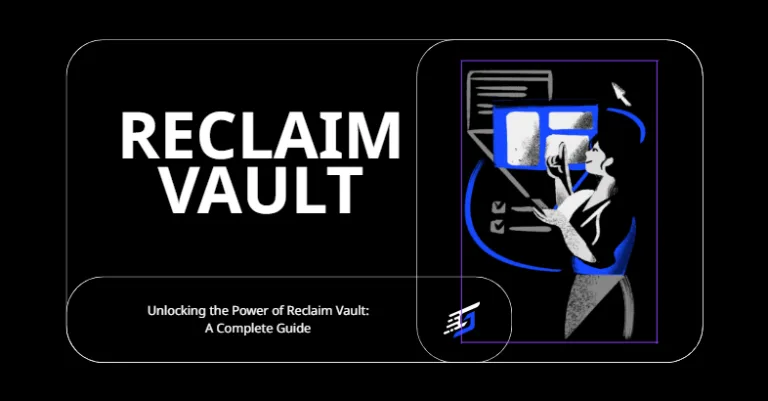Property Management Insights: Navigating Deals and Rental Challenges
Having a property that you can rent out will be a lucrative investment for anyone. However, it comes with its fair share of challenges. For example, you will have to struggle with securing favorable financing deals. On the other hand, you will also have to handle difficult rental situations. Read this guide, and we will share some useful insights to smooth out this process.
Understanding the Deal Stages for Property Management Companies: From Lead to Lease
For property management companies, securing a profitable tenant starts well before a lease is signed. Understanding the deal stages for property management companies helps streamline the process from client inquiry to signed contract. There is a pipeline that moves potential deals through several key stages – from initial lead to finalized lease. Understanding how a rental deal can help managers optimize conversions at each phase.
The first stage is lead generation and tenant prospecting. Property managers tap various lead sources to find promising tenant leads, such as online listings, signs/flyers, referrals from existing tenants, and word-of-mouth networks. Quality lead generation is vital for filling vacancies quickly. As prospects come in, screening them carefully early on saves time downstream. Request background info, credit checks, employment details, references, and any other verification needed to qualify tenants.
Once prospects pass the initial screening stage, property managers move them to the application process. This involves tenants formally applying and paying the application fee. Now, managers can run all verifications, background checks, and determine if the prospect is a good fit. Declined applications should get closure letters to maintain goodwill.
With applicants approved, the next major stage is lease negotiation and execution. Draft the lease agreement spanning all terms, such as monthly rent, security deposits, maintenance clauses, etc. Leave some room for back-and-forth if needed to land the deal. Finally, explain all lease details to tenants, collect security deposits/first month’s rent, and execute the binding contract.
Can I Rent an Apartment With Bad Credit? Tips for Renters and Property Managers
A bad credit score can deter prospective tenants from qualifying for rental homes. However, it does not necessarily mean you cannot rent at all with bad credit. By arming yourself with helpful tips to strengthen your lease application and working with rental companies willing to grant some leeway, it is possible for those with poor credit to secure apartments. At the same time, property managers can also employ smart strategies to serve potential tenants with flawed credit in a prudent manner.
Tips for Renters Seeking Apartments Despite Bad Credit Scores
- Highlight Other Favorable Application Features
Point out other strong aspects of your application that can offset bad credit, such as strong references, employment/income, on-time rent payment history, lack of criminal history, etc.
- Provide a Credit Explanation Letter
Give written context for why your credit score is low and assure the willingness and ability to pay rent timely manner moving forward. Emphasize any recent credit improvements.
- Get a Cosigner
Ask a friend or family member with a stronger credit rating and stable financials to co-sign the lease agreement. This means they can vouch for your trustworthiness and step in to pay if needed.
- Offer an Additional Security Deposit/Higher Rent
Show a good faith effort and willingness to compensate for bad credit risks by paying up to 3 months’ deposit or slightly above-market rent.
- Apply to Individual Landlords
Small individual landlords tend to be more flexible than large apartments owned by companies, often bound by strict tenant screening standards.
If you’re worried about renting an apartment with bad credit, consider working with a property management company that offers flexible screening.
Tips for Property Managers on Evaluating Tenants with Damaged Credit Scores
- Have an Open, Nuanced Discussion
Avoid outright rejections based solely on credit score cutoffs without context. Discuss circumstances and additional applicant strengths thoroughly.
- Standardize Credit Explanation Policies
Have consistent guidelines allowing tenants to provide reasons for bad credit in writing for consideration, rather than ad hoc procedures.
- Screen for Other Dealbreakers
Look for flags such as criminal history or evictions that warrant outright rejection for bad credit, plus other grounds.
- Consider Higher Deposits on a Case-by-Case Basis
Mitigate default risks by charging 1-3x monthly rent as security when tenants with poor credit seem trustworthy otherwise.
By thoughtfully bridging communication gaps, both parties can potentially find a good fit despite credit challenges initially posing hurdles.
Best Practices for Tenant Screening and Lease Enforcement
Careful tenant screening and consistent lease enforcement are key for property managers to minimize headaches. Implementing standardized procedures to evaluate tenant applicants thoroughly and upholding lease policies firmly yet fairly safeguards owners’ investments. Follow these best practices:
-
Robust Screening Protocols
Run background checks, credit reports, past rental history verifications, employment confirmations, and reference checks to avoid problem tenants. Include criteria like minimum credit scores and income thresholds. Conduct all screening diligently for every applicant to uphold fair housing laws.
-
Clarify Lease Terms Upfront
Ensure tenants understand all lease clauses at signing, such as late fees, noise policies, guests, pet policies, etc. Provide tenant handbooks listing community rules and make Q&A easy. Set clear expectations from the outset by consistent onboarding.
-
Document Everything
Keep records of screening details, signed leases, documentation for any lease violations or complaints against the tenant, maintenance requests/issues, rent payments with dates, etc. Thorough documentation is invaluable if disputes arise later.
-
Act Quickly on Violations
Follow up promptly and formally when tenants break the rules, fall behind on rent, disturb neighbors, or damage property. Send notices giving deadlines to correct issues before further action, like evictions. Enforcing gradually and timely manner strengthens compliance.
-
Apply Penalties Consistently
Avoid special treatment once warning notices expire. Impose predefined late fees, fines for every infraction, or commence eviction as warranted for continued issues after the final notice date passes, irrespective of the excuse provided later on: no empty threats or endless warnings.
Final Words
While most tenants pose no trouble when screened judiciously, even the best properties occasionally experience some problems. Consistent enforcement, accompanied by orderly documentation, prevents small issues from snowballing into costly evictions.






